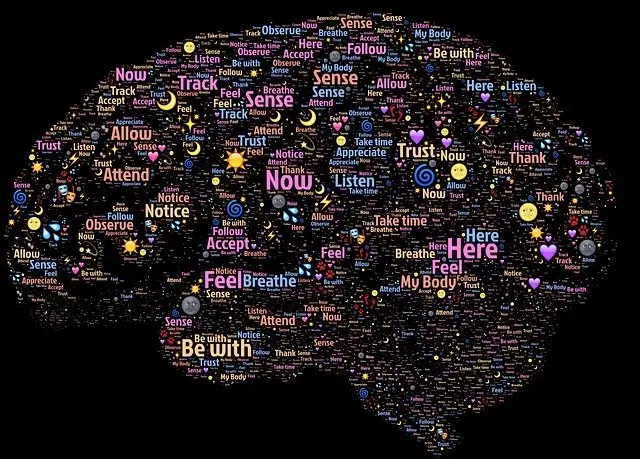Those with Narcissistic Personality Disordered parents have a lot of healing to do, but it can be done. The defences that were built in childhood need to be carefully deconstructed through self-awareness and understanding and replaced with the healthier defence of assertiveness which means we are able to set boundaries and get our needs and wants met.
Many people who grew up with a parental figure with narcissistic traits will have known that there was something very wrong with their caregiver but were not able to understand what it was. By the time they reached adulthood they may have developed a personality disorder, Complex PTSD, a panic disorder or co-dependency. They may self-medicate with addictions of all kinds.
Healing takes place through:
Knowledge – read everything you can about psychological subjects (like NPD, Complex PTSD and co-dependency) which are relevant to you. Learning leads to:
Self-awareness – the fear of looking within yourself will disappear and with self-awareness comes the ability to recognise patterns in your behaviour which leads to:
Understanding – you will develop an understanding of yourself and things will start to make sense which leads to:
Acceptance of yourself – this means you will stop judging yourself so harshly and your self-worth will increase which leads to:
Self-compassion – you will develop compassion towards yourself and want a better life for yourself and this leads to:
Change – you will have the knowledge and ability to change your life.
Knowledge and Understanding
In pursuit of healing, understanding NPD can be liberating as children of narcissists realise that the treatment they received was impersonal because the narcissist cannot see their child as a person, the narcissist can only see their own needs. Knowledge leads to self-acceptance.
Other topics which are useful to learn about are: Complex Post Traumatic Stress Disorder, Co-dependency and Childhood Trauma.
Self-Awareness and Triggers
Many children of narcissists will have some self-awareness but much of their emotional life will be repressed. Knowledge of NPD and the understanding that this brings will lead to acceptance of the self and this opens up self-awareness.
The development of self-awareness slowly brings the suppressed feelings and thoughts into conscious awareness. Self-awareness combined with self-acceptance gives individuals the ability to change their behaviours. The unconscious needs to be made conscious so that it is no longer an influence that seems, at times, to be beyond control.
Gaining awareness of the inner self makes change possible.
Self-awareness can be developed by just noticing our feelings in an inquisitive and non-judgmental way, and wondering why we feel the way we do. If we are having an intense or strong feeling then it can be good to try to find the root or the trigger of the feeling. Sometimes it can be obvious, but at other times it is not immediately apparent. Inquisitiveness helps to keep the prefrontal cortex area of the brain which is responsible for reasoning and logic ‘online.’ When we are triggered, defence mechanisms in other parts of the brain which do not have rational, logical thinking skills have taken over in an attempt to protect us.
There are constant triggers in the external and internal environment which can evoke strong and sometimes extreme emotions and reactions. Try not to berate yourself for anything you are feeling, just notice it.
Developing our self-awareness helps to disrupt habitual thought patterns and healing can take place. Healing cannot take place without the development of self-awareness.
Basically, the software of the brain is being updated through knowledge and understanding, mindfulness, self-acceptance, self-compassion and self-awareness.
Please see Triggers and Triggering.
Self-compassion
Children of narcissists will often have little self-compassion. Self-compassion can be learnt and practiced. It is about treating yourself in the way you would treat a good friend.
Self-compassion – Dr. Kristin Neff here.
Changing the way we think changes our brain structure. Please see Neuroplasticity.
We change our brains through a combination of processing the suppressed emotional pain and becoming more mindful, self-aware and compassionate towards ourselves.
Mindfulness
Mindfulness is all about getting to know yourself. Children of narcissists often think that their symptoms of trauma are their character (such as an addiction, people pleasing or irritability) when they are actually coping mechanisms which will fade with healing. It helps to get ‘back in touch’ with the body and emotions and develop self-awareness. It is the opposite of the dissociation that has often taken place for someone with trauma.
Grounding techniques which calm the nervous system are really important for people who have Complex PTSD.
Deep breathing exercises are useful. If you are feeling stressed, the 4-7-8 technique may help. This calms down the nervous system if it becomes dysregulated (hyper or hypo aroused). Breathe in for the count of 4, hold it for the count of 7 and breathe out for the count of 8. Doing just 2 or 3 of these can really help the body to feel calm. Please see link to 4-7-8 technique.
Mindfulness exercises and meditations can be found on YouTube. If this feels uncomfortable you could perhaps try 5 minutes a day or 5 minutes once a week and build on that.
Self-care
Many children of narcissists do not have high levels of self care. They may not eat healthily, exercise or sleep well or they may have poor dental health. This can be changed. It may feel uncomfortable to do nice things for ourselves to begin with (this is due to conditioning) but with persistence we can change the way we think.
Please see the Brain and Neuroplasticity
Hobbies and Interests
Many children of narcissists may not know what they themselves enjoy (as they are often people-pleasers who put their own needs and wants last) and may go along with whatever hobbies their friends and partners have.
You could experiment with some different hobbies and see if there are any you enjoy. There may be feelings of guilt for doing things for yourself which can be very uncomfortable. Just notice these feelings (in a non-judgmental way – as much as is possible).
Balance
Try to find a balance between doing for others and doing for yourself, and between working and resting. Some children of narcissists may find themselves always doing for others and working a lot either inside or outside of the home. They may feel guilty if they do things for themselves. Please see Chronic People Pleasing.
Counselling
Counselling can help a person overcome narcissistic abuse. Narcissistic abuse can lead to complex PTSD (which can be caused by childhood abuse or having a parent who is in addiction, has a personality disorder, is mentally ill or emotionally neglectful). This can manifest as irritability, depression, insomnia, feeling emotionally overwhelmed, having nightmares or flashbacks, feeling shame or worthlessness, panic attacks, substance abuse, eating disorders, chronic pain and feelings of not knowing who you are or feeling unreal or out of body among other feelings and symptoms.
I have an in-depth understanding of the outcomes of narcissistic abuse and can help you to understand what has happened to you which will help you to recover.




This Post Has 9 Comments
Great article. I’m in the middle of my healing, doing a lot better than a few years ago.
Thank you. I am glad life is getting better for you.
Healing from narcissistic abuse 😭 I’ve met with Psychologists for thirty years from one to the other Psychiatrist’s for years in which I clearly described my Narc Family in great detail, making me believe everything that “was wrong” was my fault then I looked up Google and found the word “Narcissist”
Scapegoat in my family, objectified, shamed depressed, numb, insomnia, trying to find a type of qualified Therapist who can understand my trauma, fantastic article
Hi Fleur,
I wish you all the best with your recovery.
Hello, one thing through me and my sister dealing with healing from a narcissistic mum is the confusion. We don’t know how to have a relationship with her or if we would just hurt her feelings and do no good addressing all of this with her or not. We are lost for advice there. I was wondering if narcissists ever change or how you approach a relationship with one. We feel terrible guilt for her loss of us but also struggle to be around her. It’s a hard cycle.
Any advice would be great x
Hello,
I would recommend seeing a therapist who understands trauma if you can. There is a lot to work through (lots of different beliefs and coping strategies) which is why it is so confusing. It may be helpful to read these:
https://childrenofnarcissists.org.uk/having-a-relationship-with-a-narcissist/
https://childrenofnarcissists.org.uk/guilt/
https://childrenofnarcissists.org.uk/structural-dissociation/
I wish you all the best.
Sarah, I’ve just discovered your website and viewed your encouraging vlog on ‘how to heal from narcissistic abuse.’ I’m 60+ years and the last five years have been really difficult, confusing, and unstable for: me, my family, friends, and colleagues. Your website, vlog, and the one or two articles I’ve already read (and bookmarked) ring true to my experience and those who know me. Thank you, thank you. I’m on the path…
Hi Richard,
Thank you so much. I am glad these resources have been helpful. I wish you the best on your path.
I have witnessed this effect in a close friend who grew up with a narcissistic mother. Throughout her childhood, she was constantly criticized for not meeting her mother’s high standards. This led to a deep-seated belief that she was never good enough. It took years of therapy and self-reflection for her to begin nurturing a sense of self-compassion, learning to treat herself with kindness rather than judgment.